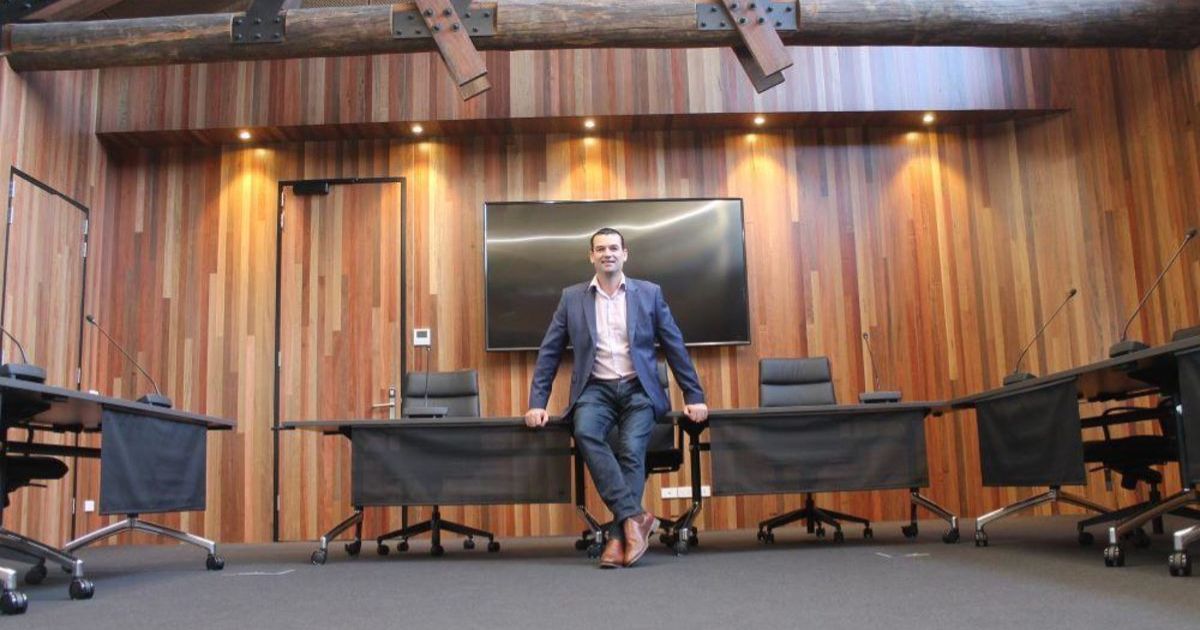FROM THE DESK OF Roland Rocchiccioli – June 20, 2019

Golden handshake: Once upon a time an employee would have received a watch upon retirement, not anymore, says Roland. Photo: SUPPLIED
I refuse to use the self-serve checkouts in supermarkets; and if you care about the livelihood of your fellow workers, you will follow suit!
ACCORDING to a new report from the Organisation for Economic Co-operation and Development, about 36 per cent of Australian jobs face a significant or high risk of automation. It is estimated 14 per cent of existing jobs could disappear over the next 15 to 20 years; and 32 per cent are likely to change, radically. Australia has one of the highest rates of casual workers among the OECD’s 34-member countries, and one of the largest increases in underemployment across OECD countries since 2007. They are disturbing statistics for many pink-collar workers!
The structure of our work force has altered, dramatically, and not necessarily for the betterment of the employee. In Australia, one-in-four workers is a casual, half of whom have no guaranteed hours. (The report defines casual jobs as involving working one to 19 hours per week.)
In times past, it was possible for a young man to join a company at aged 15. On his retirement, aged 65, he would have been presented with a splendid gold watch in appreciation of his 50 years of loyal service. Today, in our automated, technological, avaricious, self-serving, profit-driven work-force, that would not happen. For the most part, there is no loyalty between employer and employee. Everyone is looking to the next rung on the ladder − and the sharper your elbows the more likely to be your success. Television advertisement promoting retirement at age 55 only serves to exacerbate the dire situation. Who, in their right mind, retires at 55? Your greatest years of influence lie between the age of 40 and 75.
While the implementation of flexi-time and part-time/casual work contracts were, at the time, a revolutionary concept, their aggregate is decidedly imbalanced in employer’s favour. The employee is not paid for public holidays; has no sick leave or holiday pay entitlements, and their employment can be terminated by dropping them from the roster.
Obviously, we live in challenging times. When I left school in 1964 the question was not what can I do, but what will I do with the rest of my life? The choices were multifarious. As a tertiary student in Perth, I worked every Sunday at the Palace Hotel as a houseboy. I cleaned the brass railings at the entrance and served post-luncheon liqueurs in the swish lounge bar.
I was paid triple-time-and-half for eight-hours – plus generous tips, and provided a Sunday roast dinner from the dining room. It was enough money for me to live for the rest of week.
Your work is the rent you pay for the space you occupy on earth. It helps define who we are. While some occupations are more interesting than others, it provides a sense of purpose; of self-esteem, and self-worth. Disturbingly, the likelihood of non-employment for young Australians who have left education has increased from 10.5 per cent to 10.9 per cent, it is lower than the OECD average of 13.2 per cent; however, those young people with less than tertiary education have been particularly affected, with more of them being under-employed, non-employed, or receiving low pay.
I have been blessed with a fantastic and continuing career. My father was an underground machine miner, and my mother was in-service. Thankfully they recognised the value of education. I am truly grateful for all which has come my way, and is why I refuse to use an automated check-out. I am not so busy, nor so self-important, that I cannot stand for 10 minutes in a queue to make certain a fellow Australian is not thrown onto the scrapheap of permanent unemployment.
The manners of some of the check-out staff notwithstanding, the implacable determination of the two supermarket monopolies to automate the payment system is battle which we all must fight!
Roland can be heard every Monday morning – 10.30 – on radio 3BA and contacted via [email protected].


















